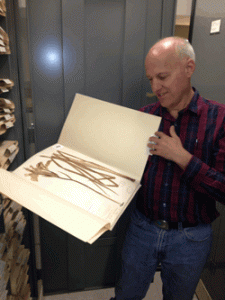 The mission of the Karuk-UC Berkeley Collaborative is to foster synergistic collaborations between the Karuk Tribe and UC Berkeley, and additional partners working with them, to enhance the eco-cultural revitalization of the people and landscapes within Karuk ancestral lands and territories.
The mission of the Karuk-UC Berkeley Collaborative is to foster synergistic collaborations between the Karuk Tribe and UC Berkeley, and additional partners working with them, to enhance the eco-cultural revitalization of the people and landscapes within Karuk ancestral lands and territories.
Our Approach, or Practicing Pikyav
Acknowledging that individuals and groups at UC Berkeley and other academic institutions have not always acted in the best interest of California Indian Tribes, the Karuk-UC Berkeley Collaborative members and our allies hope that we can be part of a larger effort to begin mending problematic relationships among universities, researchers and Indigenous peoples.
In the Karuk language, the verb pikyav means “to repair,” or “to fix.” When describing the Karuk culture, tribal members often explain, “We are fix-the-world people.” Another Karuk word is pikyávish, which refers to the world-renewal ceremony, a set of ceremonies that the Karuk and neighboring tribes continue to hold annually.
For the Karuk Tribe, the center of the world is Katimin. Here, the Klamath River and the Salmon River meet. As part of practicing pikyav, the Karuk Tribe is working to repair and restore the complex socio-cultural and ecological systems that make up the Klamath River Basin. This work includes fixing some of the environmental and social damages that continue to have profound impacts on Karuk people, traditions, and Karuk ancestral lands and territory.
Entering into collaborations with the Karuk Tribe necessitates engaging in projects that support Karuk philosophies and practices. These include Karuk eco-cultural restoration and revitalization efforts that strive to “fix the world.” One example of pikyav in action today is the Karuk Tribe’s active engagement in research programs that inform land management policy and restoration activities in the Klamath River Basin.